
- Home
- India
- World
- Premium
- THE FEDERAL SPECIAL
- Analysis
- States
- Perspective
- Videos
- Sports
- Education
- Entertainment
- Elections
- Features
- Health
- Business
- Series
- In memoriam: Sheikh Mujibur Rahman
- Bishnoi's Men
- NEET TANGLE
- Economy Series
- Earth Day
- Kashmir’s Frozen Turbulence
- India@75
- The legend of Ramjanmabhoomi
- Liberalisation@30
- How to tame a dragon
- Celebrating biodiversity
- Farm Matters
- 50 days of solitude
- Bringing Migrants Home
- Budget 2020
- Jharkhand Votes
- The Federal Investigates
- The Federal Impact
- Vanishing Sand
- Gandhi @ 150
- Andhra Today
- Field report
- Operation Gulmarg
- Pandemic @1 Mn in India
- The Federal Year-End
- The Zero Year
- Science
- Brand studio
- Newsletter
- Elections 2024
- Events
- Home
- IndiaIndia
- World
- Analysis
- StatesStates
- PerspectivePerspective
- VideosVideos
- Sports
- Education
- Entertainment
- ElectionsElections
- Features
- Health
- BusinessBusiness
- Premium
- Loading...
Premium - Events
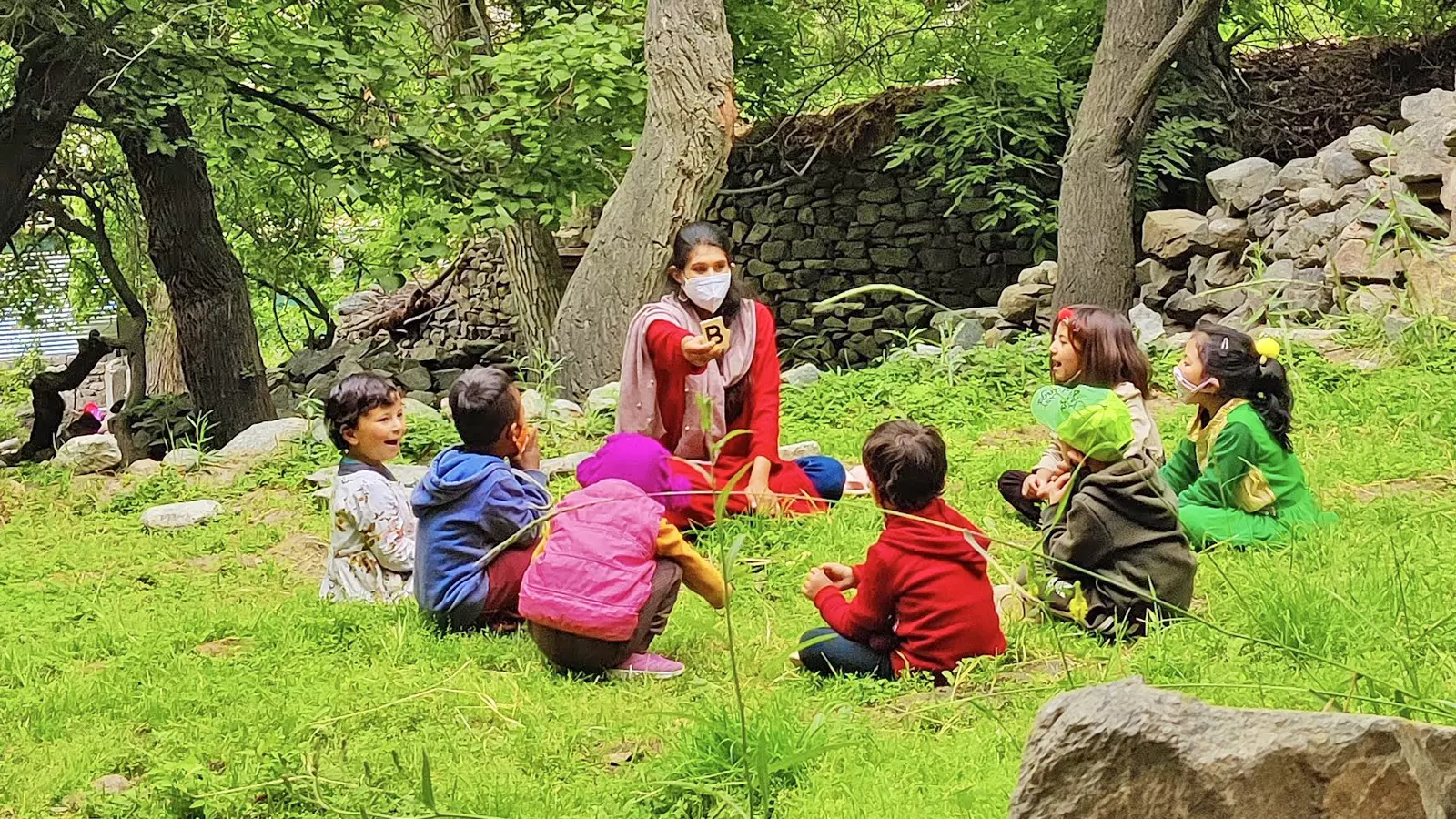
Winter had just begun to set in in Ladakh in 2015 when Sarah Shah, a 25-year-old woman came visiting Leh. As is usual for tourists, she got talking to a local taxi driver about the place and its people, unaware that this conversation would pave the way for her to adopt the region as a permanent home.Before arriving in Ladakh, Sarah, a Bachelors in Interior Designing and Masters in...
Winter had just begun to set in in Ladakh in 2015 when Sarah Shah, a 25-year-old woman came visiting Leh. As is usual for tourists, she got talking to a local taxi driver about the place and its people, unaware that this conversation would pave the way for her to adopt the region as a permanent home.
Before arriving in Ladakh, Sarah, a Bachelors in Interior Designing and Masters in Business Administration, had worked for 1.5 years at a corporate company in Bengaluru, and taken a break. As part of her break, she had travelled to Doda district in Jammu and Kashmir where she was volunteering at a private school in the remote village of Breswana. Sarah was loving her work as a teacher and so when the taxi driver mentioned the need for teachers in Turtuk, she heard him in rapt attention. It was the driver who gave Sarah the phone number of a member of the village education committee of Turtuk, one of the northern-most villages of India, nestled between the Karakoram and Himalayan range and located on India-Pakistan border.
Turtuk was under Pakistan’s occupation until 1971, but was captured by the Indian Army in the Indo-Pakistani War. Since then Turtuk has found itself readjusting to a new dispensation even as its people have been coming to terms with their extended families being divided by borders. What has helped Turtuk, with a population of about 3,000 according to the 2011 Census, find its feet soon enough has been visible development on the ground. Over the years, Turtuk has emerged as a famous destination for tourists both for its historical value and unparalleled beauty.
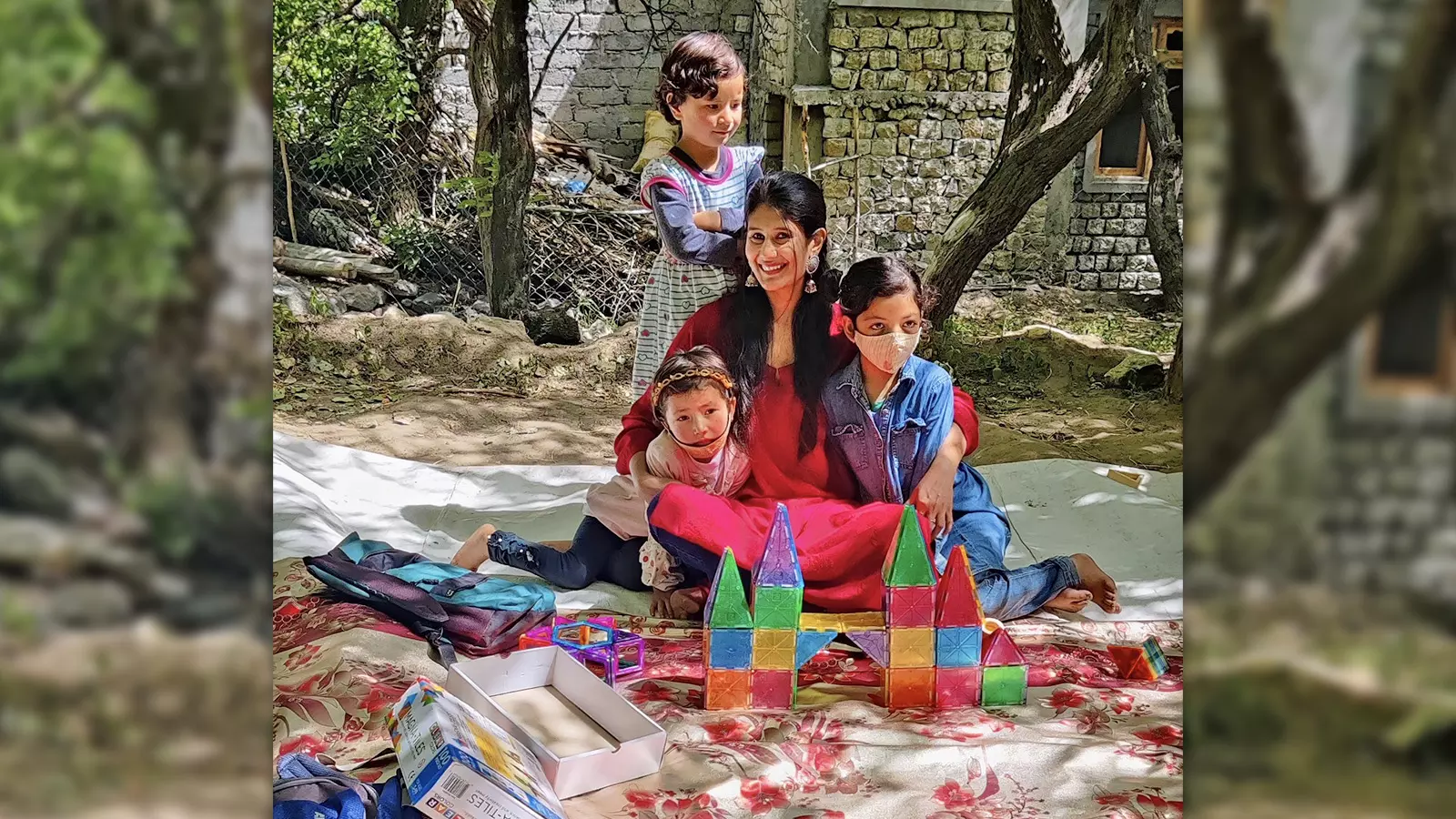
Sarah Shah began working on students' education in Turtuk's government schools and now runs her own school.
While there has been development on several fronts, the remoteness of the place has been a challenge for quality education. Given the harsh weather conditions, which see the temperature plummet to -6 degree Celsius and snowstorms lash the area in winters, the schools in Turtuk used to lack teachers.
Sarah spoke to the Turtuk education committee member and when she got to know about the challenges being faced by this remote village, her work in Doda inspired her to volunteer help in Turtuk too. Since she was briefly visiting Leh, Sarah left – but with a determination to return. She found herself in the far-flung village in January 2016.
“It was the time of harsh winters. The schools were closed and I started helping the students in an unstructured way. I worked on improving their communicative English, personality development, confidence-building and in the evening I used to help the weaker students with their syllabus for Class 10,” Sarah told The Federal.
Seven years since she decided to work in Turtuk on imparting quality education to students, Sarah says assimilation did not prove to be much of a challenge. Sarah told The Federal that she did not feel culturally alienated because she hails from Karnataka’s Chikmagalur, a hill station, where her family is involved in coffee farming.
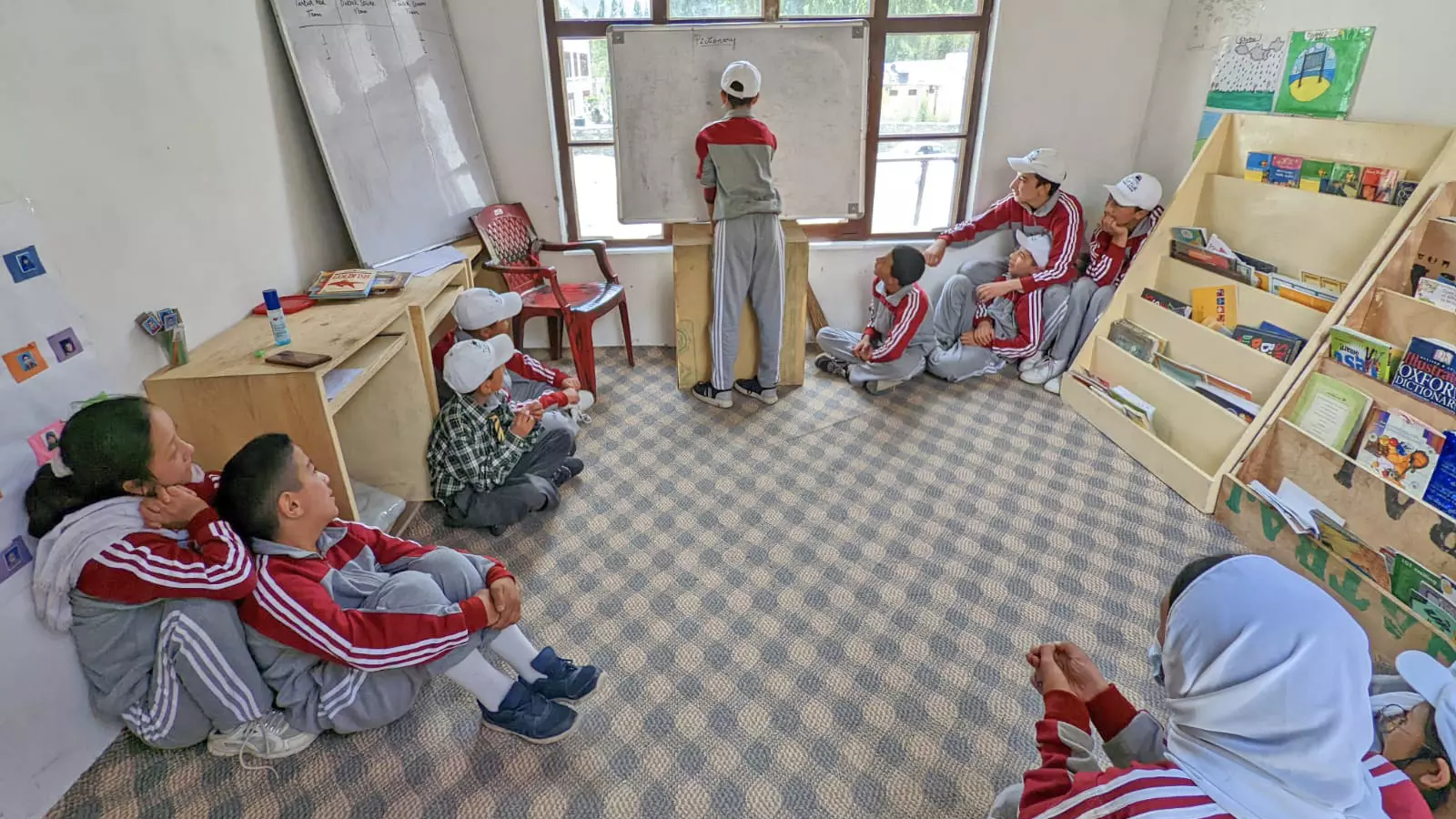
For two years during Covid, Sarah did not charge any fee because tourism in the area was hit.
Today, she operates her own private school, run under a trust, in Turtuk where enrolment has been steadily rising.
“People in Turtuk were welcoming and it became very easy to adapt to the culture and way of life. However, the real challenge is related to education. In 2016, tourism wasn’t very well established and students lacked both quality education and proper exposure. Even the internet availability and speed proved to be a challenge seven years ago,” she said.
While there was infrastructure in terms of a school building and desks and benches, there weren’t sufficient teachers. To tide over the problem, Sarah on her own began to arrange volunteers from across India. to come to Turtuk, teach the children and also share their life experiences to provide the students of Turtuk’s government schools the required exposure. She ensured these volunteers reached not just Turtuk, but even nearby villages and worked with government schools.
In 2016, Sarah too worked as a volunteer. After spending a period of six months from January 2016 to July 2016, she left for Bengaluru but ensured a steady flow of volunteers to Turtuk and adjoining villages.
“I stayed for a few months in Leh with the school. Meanwhile, I was also sending volunteers to Turtuk and helped some schools in Kargil by sending volunteers for teaching,” she said.
While she was going to Bengaluru, a Leh-based school approached Sarah to teach at their school. She obliged and worked with the school for a couple of months and that is when the idea of setting up Turtuk Valley School occurred to Sarah for the first time. But resources were a constraint.
From 2016-2019, she kept thinking about it because volunteering with government schools was not making the kind of impact Sarah had envisioned. Many volunteers were coming and going but the results were not meeting Sarah’s expectations.
“That was the time I started thinking about an after-school programme but funding was a major concern. Luckily my husband knew somebody who runs schools in Mumbai,” said Sarah, who married Khalik Khan, a teacher in Turtuk’s government school.
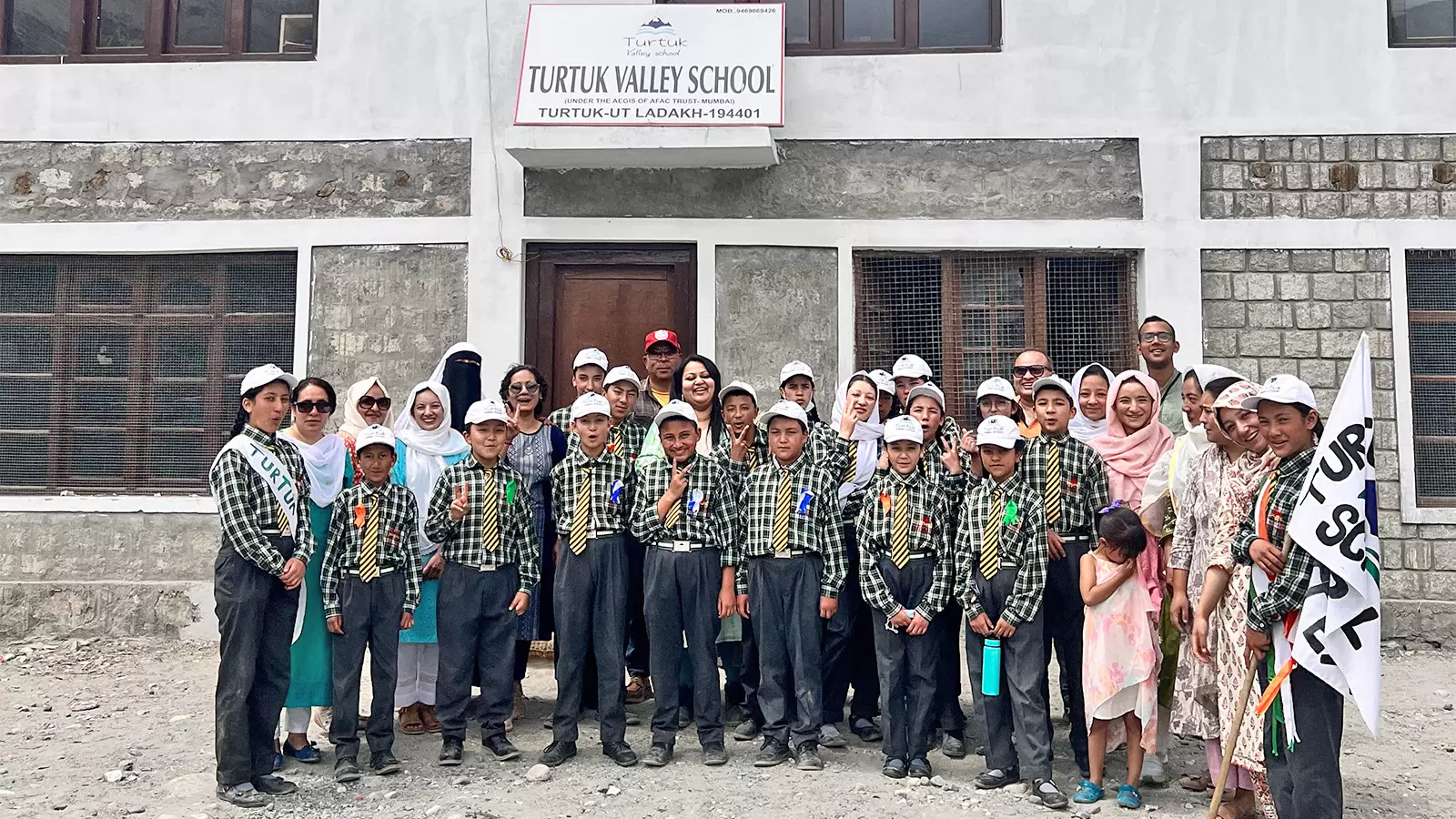
Turtuk Valley School is helping widen the exposure of children.
“Jitendra Mandlecha was the Director of Academy of Fine Arts and Crafts (AFAC) Academy, Mumbai. When he found out that I was trying to open a school in Turtuk, Jitendra offered to help out the major requirements financially. He also helped with inputs on what I would need to open the school,” Sarah said.
After getting clarity about the basic requirements, the Bengaluru educationist became confident about how to operate the school and raise funds for other minor expenses. In October 2020, in the midst of the pandemic, Sarah Shah established a unique private school in Turtuk, called Turtuk Valley School, with 25 students.
Talking about her struggles, she said, “I started from volunteering but we wanted to do a structured thing, so we collaborated with a school in Leh to start a branch in Turtuk. It got functional but didn’t survive for long due to logistical problems.”
“I wanted to do something by myself but there was a huge amount of money required to run a school. I wanted to run the school completely as a not-for-profit institution and we were suffering almost 80 per cent losses. Another problem was to make the villagers understand my vision and win their trust. It took time but when they saw me and my friends do some good work on the ground, the people of Turtuk came along,” Sarah shared.
Turtuk Valley School currently runs out of a rented building but Sarah has managed to take land on lease for 45 years to construct a new building.
The plan is to have permanent faculty in the school and end the dependence on volunteers from outside.
“We are working towards ensuring local teachers take over the school completely by themselves. To that end, we are empowering the women of the village as mostly only women teachers come to teach here,” she said.
Turtuk Valley School organises regular workshops and training sessions for local teachers with experts from outside coming to the region to extend help. Sponsored by Kotak Education Foundation, Mumbai, local teachers are also taken to Mumbai for training.
The training programme focuses on boosting the confidence of teachers because it is an essential element of teaching. The school has also found an innovative way to expand the exposure of students. In 2022, during the winter months, the first batch of students of Class 7 stayed at Academy of Fine Arts and Crafts school in Mumbai under a three-month residency programme.
Regular classes of these students were held with the students of AFAC School. These students got access to laboratories and computers at AFAC. Turtuk Valley School is planning a similar trip this year too. Additionally, during the stay, students were taken on weekend trips in Mumbai at various locations, which were sponsored by volunteers.
In the last two years, the school has received two national-level awards. It received an award from Education World of India under the category of Philanthropic Activities, bagging the 7th position in India and 1st in Ladakh.
During the pandemic, the school did not charge any fee from its students for two years. This was done taking into consideration the jolt suffered by the tourism industry on which many families in the region depend.
Adding more feathers to its cap, in 2023, the school was awarded the Best Pre-School in Ladakh by the India School Awards. From 25, the school has now moved to 130 students.
Talking about her stay in Turtuk, Sarah says that she found a lot of genuineness when she arrived in the region for the first time. “People were extremely kind and not money-minded at all. If someone is unwell, people rush to see if they can be of any help,” she said.
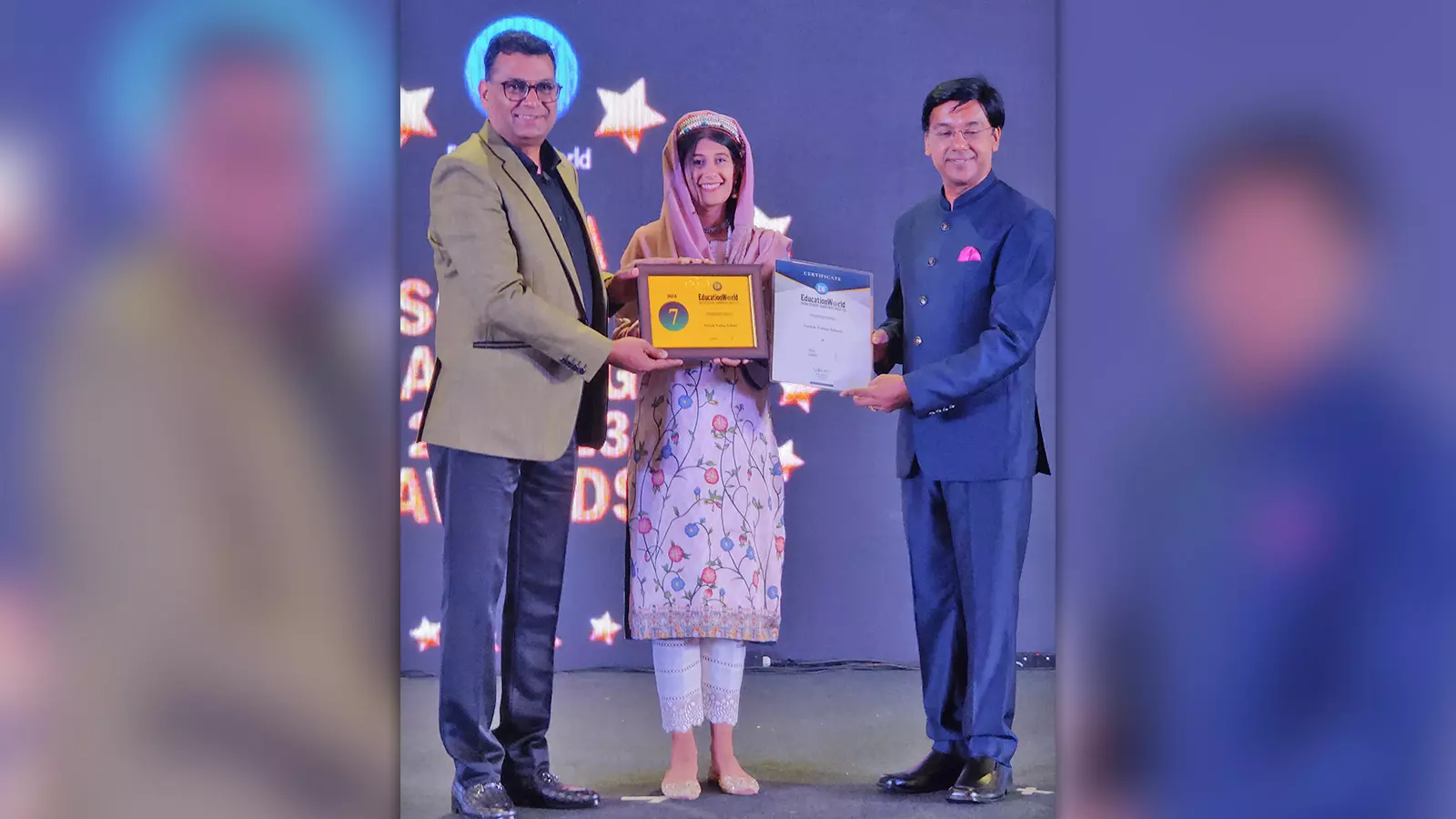
Sarah Shah accepting the award from Education World of India for Philanthropic Activities.
“Such courtesy is missing in cities today. This aspect provided a sense of security to me that though I was in an alien place and had no family here, if I am ever in need, these people will definitely help.”
Sarah says Turtuk has had a strange pull on her, which ensured she embraced the place wholeheartedly and made it her own.
“I could have worked in any other place. I am not staying here only because I have been married here. Lots of volunteers have told me that this place has an enticing charm and creates a desire to never leave.”
Ironically, the name Turtuk is derived from a Balti word ‘Dugtuk’, which means a desire to stay. Sarah has not just been struck by the desire to stay, but also contributes meaningfully to the place while she stays.

